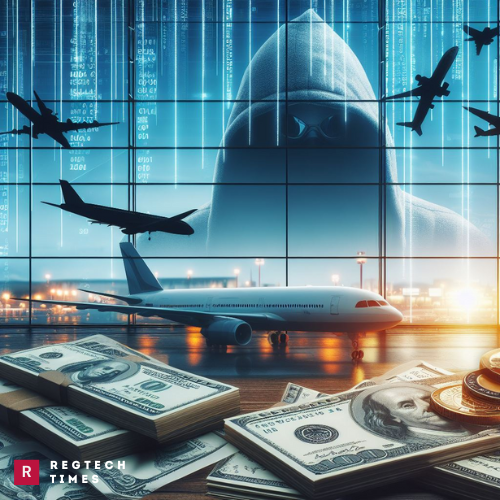In the annals of white-collar crime, the saga of Sung Peel Hwang, a former manager at the Korean Air Lines (KAL) office in Guam, stands out as a testament to the consequences of financial misconduct. Hwang’s recent sentencing to 41 months in prison for bank fraud and money laundering has brought to light a sophisticated scheme spanning over three years, resulting in the embezzlement of over $600,000.
The Sung Peel Hwang Deception
Commencement of Deception
Hwang’s intricate web of deceit commenced in September 2015 and persisted until December 2018. As an administrator at the Guam KAL office, Hwang wielded significant responsibility, including the critical task of reporting passenger numbers on KAL flights departing from Guam and remitting the corresponding Passenger Facility Charge (PFC) to the Guam International Airport Authority (GIAA).
Exploitation of Trust
However, rather than fulfilling his duties faithfully, Hwang chose to exploit his position for personal gain. Central to his fraudulent scheme was the deliberate underreporting of the PFC owed to GIAA. By manipulating the reported figures, he siphoned off the difference between the actual PFC owed and the amount paid, diverting substantial sums into his personal bank account.
The Fallout of Sung Peel Hwang’s Actions
Financial Erosion
For the scheme, Hwang surreptitiously funneled over $3.5 million in KAL funds into his coffers, with over $600,000 earmarked for his own enrichment. Beyond the realm of financial loss, Hwang’s actions undermined the integrity of the aviation industry in Guam, eroding confidence and jeopardizing the credibility of KAL’s operations.
Law Enforcement Response
The swift and decisive response of law enforcement agencies underscores the gravity of such offenses. The FBI Guam Resident Agency, in collaboration with the Internal Revenue Service Criminal Investigation Division, meticulously investigated Hwang’s illicit activities. Assistant United States Attorney Benjamin K. Petersburg led the prosecution, ensuring that justice was served.
Sung Peel Hwang’s Verdict
Judicial Condemnation
In sentencing Hwang to 41 months in prison, the court sent a clear message of accountability and deterrence. Coupled with five years of supervised release and restitution amounting to $615,271.51, the punitive measures imposed underscore the gravity of Hwang’s transgressions. By holding him accountable for his actions, the court sought to reaffirm the principle that financial crimes will not go unpunished.
Reflections on Sung Peel Hwang’s Case
Upholding the Rule of Law
Commenting on the case, United States Attorney Shawn N. Anderson emphasized the importance of upholding the rule of law and safeguarding the interests of both employers and the community at large. FBI Special Agent in Charge Steven Merrill reiterated the FBI’s commitment to combating financial crimes, emphasizing the far-reaching impact of such offenses on society. Similarly, IRS-CI Special Agent in Charge Adam Jobes underscored the imperative of prosecuting fraudsters and ensuring that they face the full consequences of their actions.
Lessons from Sung Peel Hwang’s Misdeeds
Hwang’s case serves as a stark reminder of the importance of robust internal controls and oversight mechanisms within organizations. By exploiting weaknesses in KAL’s financial reporting processes, Hwang was able to perpetrate his scheme over an extended period. Companies must remain vigilant against such threats, implementing stringent checks and balances to detect and deter fraudulent activities.
Moreover, Hwang’s downfall underscores the critical role of whistleblowers and internal audits in uncovering financial misconduct. It was through GIAA’s auditing procedures that Hwang’s fraudulent activities eventually came to light, highlighting the effectiveness of proactive measures in safeguarding against fraud.
As the dust settles on the case of Sung Peel Hwang, it serves as a cautionary tale for those tempted to exploit positions of trust for personal gain. In a world where transparency and integrity are indispensable, the repercussions of succumbing to greed can be severe. Through the diligent efforts of law enforcement and the steadfast pursuit of justice, individuals like Hwang are held to account, serving as a beacon of hope for a system built on fairness and equity. Moving forward, the lessons learned from Hwang’s misdeeds must be heeded to prevent similar instances of fraud and ensure the integrity of financial systems worldwide.



